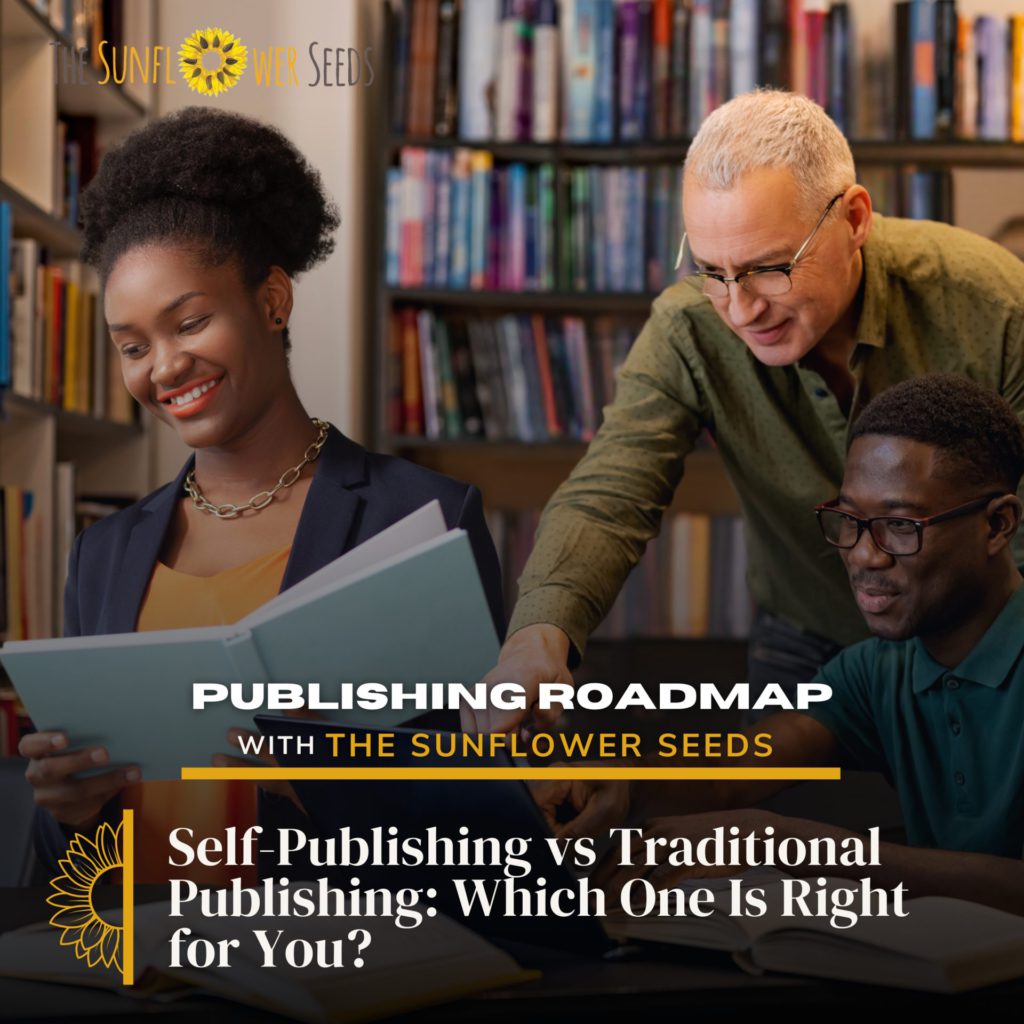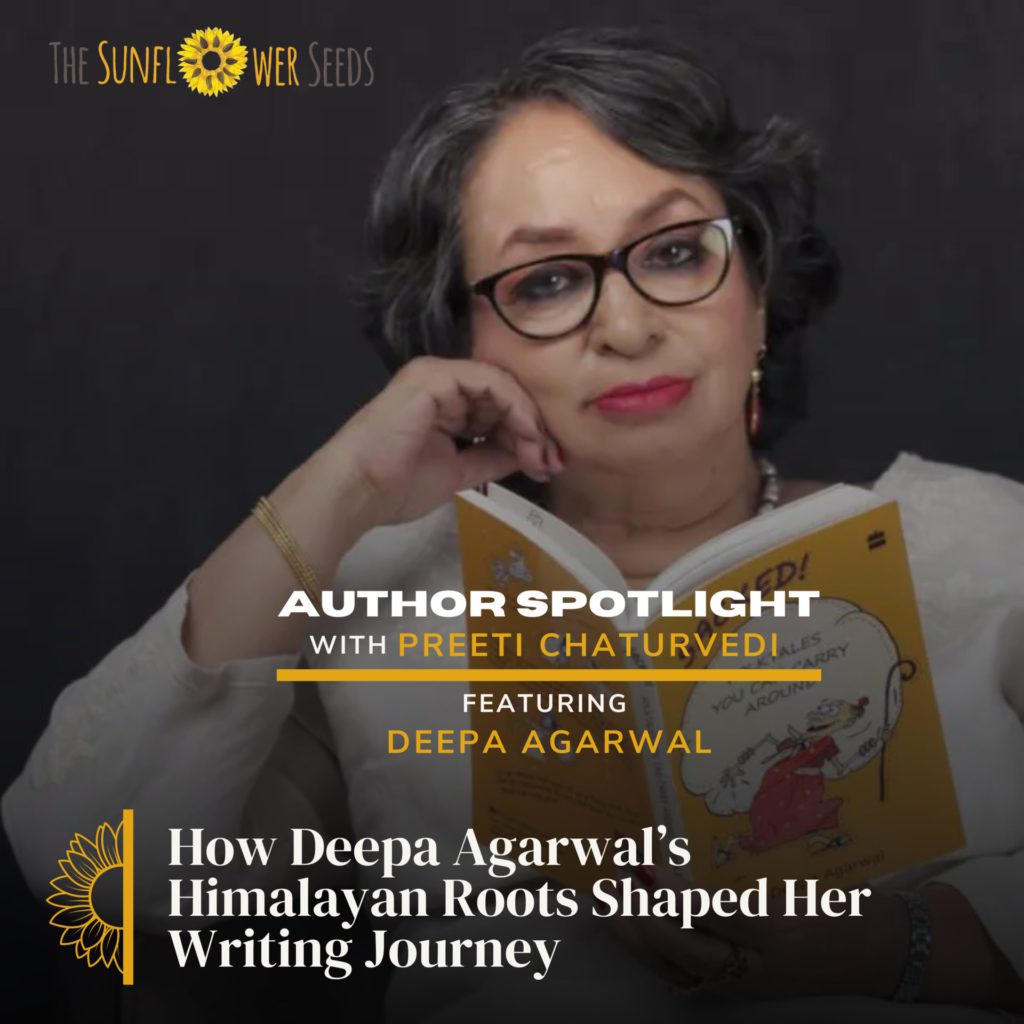Self-Publishing vs. Traditional Publishing: Which One Is Right for You?

In today’s ever-evolving publishing world, authors have two primary paths to consider: self-publishing or traditional publishing. Each comes with its own set of pros and cons, and the choice often depends on your creative vision, budget, and long-term goals. For aspiring authors searching for “the best publishing options for new authors” or “how to publish a book for beginners,” this guide will help clarify your decision. Along the way, we’ll discuss how The Sunflower Seeds, a leading publishing support agency, can simplify your publishing journey. Whether you’re an experienced writer looking to branch out or a first-time author eager to explore your options, understanding these pathways is crucial. From gaining creative independence to leveraging professional expertise, this article breaks down the choices step-by-step. Let’s uncover which publishing method best aligns with your aspirations and how to make the most of your efforts.
Why Choose Self-Publishing for Your First Book?
Self-publishing is an increasingly popular choice for authors who value creative control and fast timelines. By leveraging platforms like Amazon KDP and IngramSpark, self-published authors can take their books directly to readers.
Benefits of Self-Publishing
- Creative Control
You oversee every aspect of your book, from its cover design to its marketing strategy. This autonomy appeals to authors with a distinct vision. - Higher Royalties
Authors can earn royalties of up to 70% on platforms like Amazon KDP, significantly more than the 10-15% typical in traditional publishing. - Faster Turnaround
Self-published books can go live in weeks, allowing authors to capitalize on market trends or seasonal demand quickly. - Global Reach
Digital tools enable you to distribute your book globally, ensuring accessibility to a broader audience.
Challenges of Self-Publishing
- Upfront Costs: Authors must cover expenses for editing, cover design, and marketing.
- Time Commitment: Managing the entire process—from formatting to promotions—can be overwhelming.
- Competition: Standing out in a crowded market requires strategic marketing and branding.
Traditional Publishing: Will it Still be Relevant in 2025?
Traditional publishing remains a prestigious option for authors who want the backing of established publishers. If you’ve ever wondered, “How to find the right publisher?” or “Is traditional publishing worth it?”, here’s a breakdown of its advantages and limitations.
Advantages of Traditional Publishing
- Professional Expertise
Publishers provide access to editors, designers, and marketers who refine your manuscript and package it for the market. - Wider Distribution
Traditional publishers place books in major bookstores, libraries, and media outlets, boosting visibility and credibility. - Financial Support
Authors often receive advance payments, covering their initial costs without financial risk. - Reputation and Validation
Acceptance by a publishing house enhances your credibility as an author.
Challenges of Traditional Publishing
- Lengthy Timelines: It may take years from manuscript submission to publication.
- Limited Creative Freedom: Publishers may alter your work to align with market trends.
- Lower Royalties: Authors typically earn 10-15% royalties after production costs are deducted.
- High Barriers to Entry: Securing a literary agent and surviving competitive slush piles can be daunting.
Key Factors to Consider When Picking a Publishing Path
1. Creative Vision
If retaining control over your book’s creative direction is essential, self-publishing offers unmatched flexibility. In contrast, traditional publishing provides professional guidance to fine-tune your story.
2. Budget and Resources
Self-publishing demands upfront investments in services like editing and design. Traditional publishing covers these costs but offers lower royalties.
3. Timeline
Need your book published quickly? Self-publishing is ideal. If you’re willing to wait for polished, market-ready content, traditional publishing might be better.
4. Market Reach
Traditional publishers secure shelf space in major bookstores and libraries. Self-publishers rely heavily on digital platforms and direct marketing strategies.
Emerging Trend: Hybrid Publishing
Hybrid publishing blends the best of both worlds. These companies provide professional services akin to traditional publishers while allowing authors to retain more creative control and royalties. At The Sunflower Seeds, we offer customized hybrid publishing solutions tailored to each author’s needs.
How The Sunflower Seeds Simplifies Publishing for Authors
At The Sunflower Seeds, we empower authors to navigate the publishing world with confidence. Here’s how we can support you:
- Manuscript Development
Whether you’re self-publishing or pursuing traditional publishing, our editors refine your manuscript to ensure it’s market-ready. - Marketing and Branding
We help self-published authors build strong online presences, leveraging SEO strategies, social media campaigns, and influencer collaborations. - Personalized Support
From understanding royalty structures to negotiating contracts, we guide you every step of the way.
Real-Life Case Studies: Success in Both Paths
- Lisa Genova (Still Alice): Genova self-published her novel, which later gained massive success and caught the attention of a traditional publisher.
- Amish Tripathi (The Shiva Trilogy): Started with self-publishing in India, his books gained traction and were later picked up by a traditional publisher.
Frequently Asked Questions About Publishing
- Which publishing option is more profitable in the long run?
Self-publishing offers higher per-sale royalties, while traditional publishing provides consistent revenue through broader distribution. - Can I switch from self-publishing to traditional publishing?
Yes, many successful self-published authors have transitioned to traditional publishing after proving their market appeal. - Do self-published books get into bookstores?
With effort and platforms like IngramSpark, self-published authors can achieve bookstore placement.
Conclusion: Choosing Your Publishing Path
Choosing between self-publishing and traditional publishing is one of the most pivotal decisions in your writing career. Both paths offer unique opportunities, and your choice should align with your goals, resources, and timeline.
At The Sunflower Seeds, we bridge the gap between your dreams and the publishing world. Whether you’re crafting a memoir, a novel, or a business guide, our team ensures your journey is seamless and successful. Ready to take the first step toward publishing success? Contact us today to transform your vision into reality.
Still struggling to write a book? Wondering how to write a book with no experience? Click on the link to learn more about it:
“How To Write A Book With No Experience: Beginner’s Guide”





